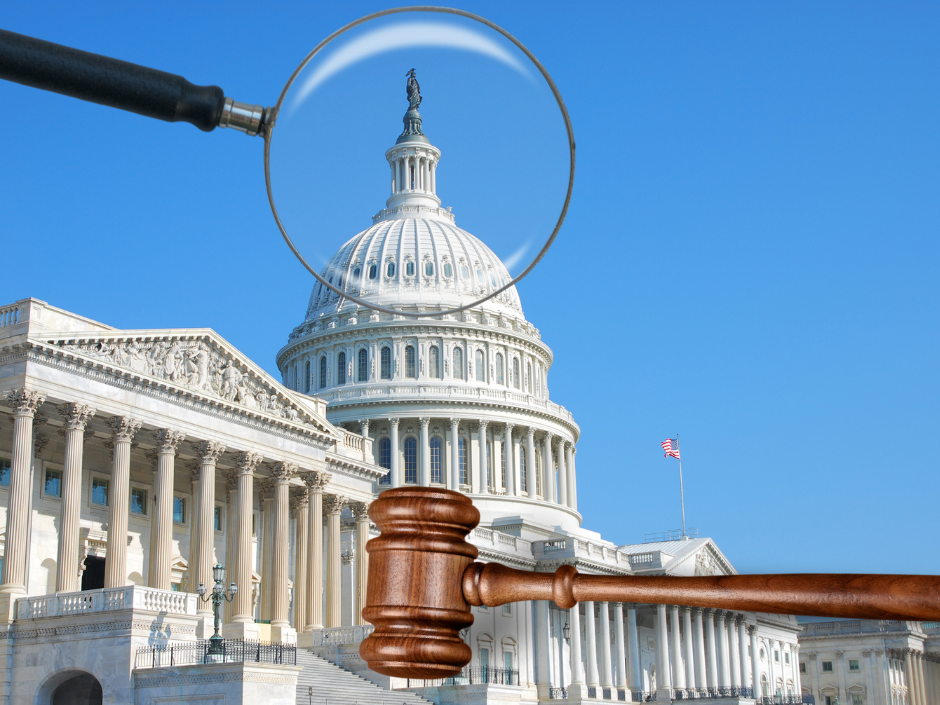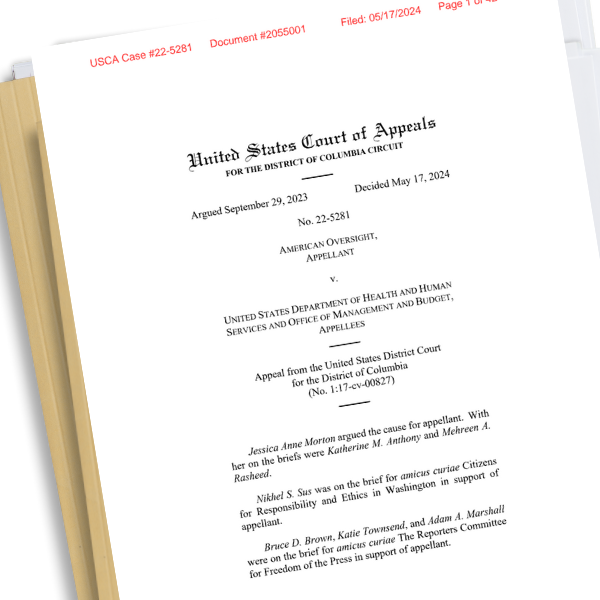
Judge Rejects Boilerplate “Congressional Records” Label Used to Shield Agency Emails from Disclosure
American Oversight clears the way to uncover communications, as Congress and the Trump administration drive up health care costs and cut coverage.

A federal judge ruled in favor of American Oversight in its long-running Freedom of Information Act (FOIA) case over records related to the first Trump administration’s 2017 effort to overturn the Affordable Care Act, which could have resulted in 17 million Americans losing their medical coverage.
In the shadow of Congress and the current Trump administration driving up health care costs and booting Americans off their coverage, the court’s decision makes clear that communications between federal agencies and congressional staff cannot avoid FOIA’s reach simply because a congressional staffer pastes boilerplate language onto emails labeling them “congressional records.”
“This ruling is a significant victory for transparency at a time when Congress and the Trump administration are driving up health care costs and stripping people of their coverage,” said Chioma Chukwu, Executive Director of American Oversight. “If congressional staff could shield agency communications from disclosure with a simple boilerplate disclaimer, the public would lose access to policymaking debates with life-and-death consequences, like the fight over health care access. The court was clear: FOIA’s spirit of disclosure cannot be undermined by such gamesmanship.”
In 2017, just months after opening its doors, American Oversight sued the Department of Health and Human Services and the Office of Management and Budget for records related to the Trump administration’s attempt to roll back the Affordable Care Act. Among the documents produced were emails from House Ways and Means Committee staff that included attachments and a boilerplate footer asserting the materials belonged to the Committee and were exempt from FOIA — even though the agencies had relied on the materials in crafting legislative strategy. The Committee intervened to block disclosure of the records, but after years of litigation, the U.S. District Court for the District of Columbia has ruled that Congress cannot use such tactics to circumvent FOIA and prevent the release of records agencies use in their decision-making.
In concluding its opinion, the court underscored the importance of maintaining public access to policymaking records:
“[A]gencies frequently communicate with Congress about a range of budgetary and policy matters, and . . . FOIA’s protections do not shield all of those communications from disclosure simply because of Congress’s involvement. To deem the actions here — staffers simply copying and pasting a catch-all disclaimer into any communication they find appropriate — as a clear assertion of congressional intent would significantly broaden the scope of FOIA exemptions. Such an approach would contravene the D.C. Circuit’s admonition that Congress’s FOIA exemption cannot be interpreted to ‘undermine the broad spirit of disclosure that animates the Act.'”
Today’s ruling follows American Oversight’s earlier win in the case last year, represented by Democracy Forward, when the court of appeals rejected the government’s sweeping attempt to withhold records under FOIA’s deliberative process exemption. These victories ensure that the public will gain long-delayed access to records of how the first Trump administration and Congress coordinated during their 2017 effort to repeal the Affordable Care Act, and congressional staff will find it harder to block the public from executive branch records they have a right to see.


